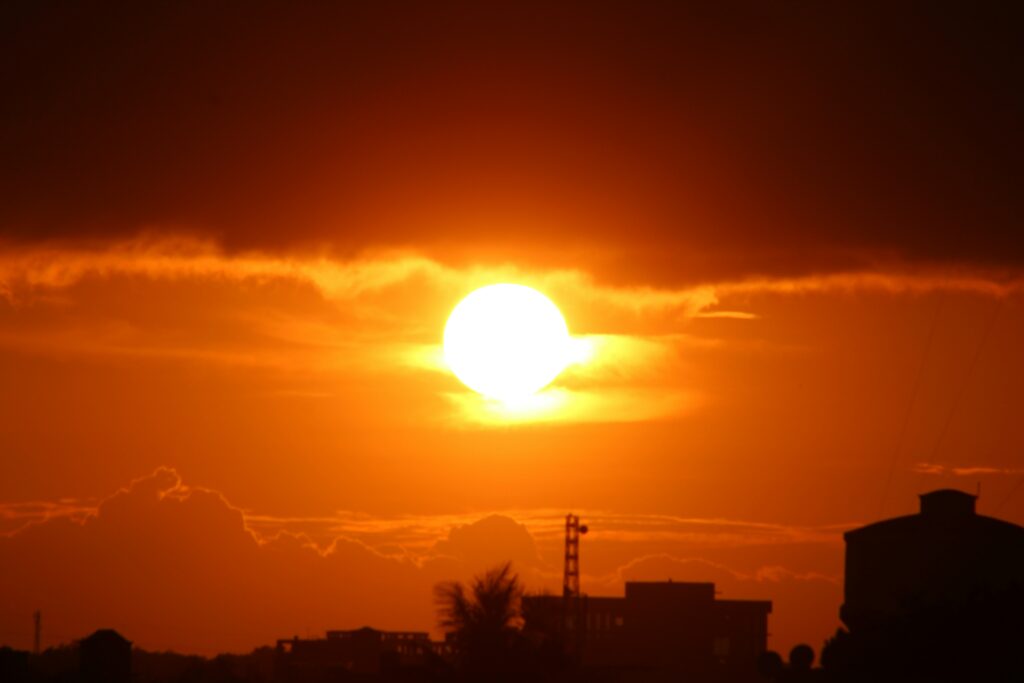The Catastrophe Question Backgrounder
TRANSCRIPT
Narrator
The news is filled with warnings of an ongoing climate crisis.
Cities and governments in Canada and around the world have been issuing declarations of a Climate Emergency.
The UN Secretary General has called upon world leaders to “act now to save our planet.”
And closer to home, the Environment Commissioner of Ontario called climate change “arguably the most significant crisis humanity has ever faced.”
John Robson
Bosh. Worse than the black plague that killed half of Europe’s population in the 1340’s? Worse, than the demographic catastrophe that followed the coming of European diseases to the Americas? Worse than either World War or the threat of nuclear annihilation? Worse than the Great Depression or the Fall of Rome?
I’m John Robson, and you’re watching a Climate Discussion Nexus backgrounder on the Catastrophe Question.
Narrator
Now here’s a different perspective. Swedish climate scientist Dr. Lennart Bengtsson is one of the top experts in his field, having served as head of both the European Weather Centre and the Max Planck Institute for Meteorology. He was recently asked to comment on the magnitude of 20th century climate change.
“The warming we have had over the last 100 years,” he said, “is so small that if we didn’t have meteorologists and climatologists to measure it we wouldn’t have noticed it at all.”
John Robson
It’s too small to notice. And that’s important to keep in mind to maintain perspective. Yes, there’s lots of evidence that the world has warmed a bit since the 1800s. But compared to ordinary weather variability the changes have been tiny. They’re surely too small to cause catastrophe and they certainly have not already done so.
Now, we’re often told that this or that year is the “warmest year on record” as though it were self-evidently bad. And we’re also often told that the terrible effects of climate change are already taking a massive toll.
But what other records have we set recently?
Narrator
The world is richer now than ever before.
The number of people living in poverty is at an all time low.
More people have access to education, electricity, health care, clean water and decent housing than ever before.
More countries have embraced democracy and enacted basic human rights protections than ever before.
Global food production is at an all time high.
The air and water is cleaner, especially in wealthy countries.
And the number of people dying from extreme weather events is down by over 90 percent since 1900 even though global population has more than quadrupled.
John Robson
Those are remarkable numbers. And the widespread availability of inexpensive, reliable and reasonably clean energy from fossil fuels was an essential ingredient for all of them.
And even if the gentle warming since 1900 was entirely due to fossil fuel use, which it certainly was not, it didn’t prevent any of these wonderful things from happening.
Ah, but what of the future, people say. Our carbon sins are about to catch up with us.
You might certainly start thinking so after all the apocalyptic rhetoric about climate change from government leaders and from journalists. Listening to them talk you could easily assume that the connection between warming and current or imminent catastrophe has been scientifically proven.
Narrator
Except that’s not what the experts are saying. A few years ago the Intergovernmental Panel on Climate Change, or IPCC, asked a group of scientists and economists to assess the likely economic impacts of climate change over the next hundred years. So they looked at the projections of global warming and studied how people have adapted to climate variability in the past. And this was their overall conclusion: (p. 662)
For most economic sectors, the impact of climate change will be small relative to the impacts of other drivers. Changes in population, age, income, technology, relative prices, lifestyle, regulation, governance, and many other aspects of socioeconomic development will have an impact on the supply and demand of economic goods and services that is large relative to the impact of climate change.
John Robson
In other words, the relative balance of importance between climate change and everything else will be about the same over the next hundred years as it was over the past hundred years. The sky is not falling, nor is it burning.
But one point the IPCC emphasized is that the actual impacts of climate change will depend strongly on how people adapt.
After all, humans already live and thrive in every climate on Earth, from the Arctic to the tropics, from the wilderness to cities.
We’re very adaptable creatures. What’s more, given the choice, we prefer warmth to cold. Think where people with money go on vacations. Except for adventure tourists or mountain climbers, they go somewhere warm.
And now a word from our sponsor. And that’s you, because the Climate Discussion Nexus is supported by ordinary Canadians who want to see more common sense, more logic, and more facts in the discussion about climate change… and less yelling. If you’d like to help us, subscribe to our YouTube channel and our newsletter, follow us on Twitter, like us on Facebook, and go to our Patreon page, make a pledge, become a monthly sponsor. And now, back to our regularly scheduled programming.
Narrator
Another key point that the IPCC made was that wealth matters. Wealthy countries are able to adapt and be resilient in the face of weather variability and climate change, much more so than poor countries. That’s why climate change policies that reduce our prosperity make it harder, not easier, to deal with whatever climate variability might be coming our way.
John Robson
Unfortunately, in the name of climate virtue signalling, some wealthy countries are now putting up roadblocks to the development of life-saving, adaptivity-enhancing wealth for people in poorer countries.
For instance, at a 2014 UN Climate Summit, Germany proudly announced that it would block financing for the development of coal-fired power generating stations in developing countries, even though modern coal plants, in developing countries as well as in advanced countries, are far cleaner and more efficient than the ones that put Germany and other western countries on the path to their current wealth.
Narrator
The real crisis is that climate change policies are beginning to threaten our prosperity, and the ability of developing countries to lift their people out of poverty,
Meanwhile, the experts in the IPCC said that as long we are adaptable, even if the models are right and the world warms due to greenhouse gas emissions, we’ll be able to deal with it. For instance, if farmers adapt to a changing climate they’ll come out about even, and some crop yields could actually go up. Once again, climate change will matter less than economic and technological changes. Here is how they phrased it:
It is only about as likely as not that the net effect of climate and CO2 changes on global yields will be negative by 2050, but likely that such changes will occur later in the 21st century.
At the same time, it is likely that socioeconomic and technological trends, including changes in institutions and policies, will remain a relatively stronger driver of food security over the next few decades than climate change. (p. 513)
As for forestry, they were pretty blunt. (p. 676)
Including adaptation in forest management, climate change will accelerate tree growth. This will reduce prices to the benefit of consumers everywhere.
John Robson
It’s not the calamity you’ve been led to believe. And that’s why the biggest threat to the advancements we’ve made over the past century and more isn’t climate change, it’s climate change policy.
Narrator
So, shouldn’t we be debating whether the policies are worth it? Some world leaders think we shouldn’t even be allowed to ask. In a 2007 speech about climate change to the UN, former Norwegian President Gro Harlem Brundtland went so far as to say, “It is irresponsible, reckless and deeply immoral to question the seriousness of the situation.”
John Robson
No it’s not. Quite the contrary. It’s irresponsible, reckless and deeply immoral not to ask questions about policies that might do enormous harm for minimal benefit. If the questions are stupid, they should be easy to answer. And if you can’t answer them, hollering “Silence!” is no substitute. It’s not how open societies work. And I won’t be silenced.
Here’s the bottom line. Climate variability is a fact of life on this planet. Regardless of the extent to which our actions might add to it, we can’t wave a magic wand and make it stop. So our priority should be achieving economic resiliency and continuing to be adaptable and innovative, because from what we know today, climate change in the future almost certainly won’t be a catastrophe. It will more likely be a footnote, just as it was over the past century.
Join us online at climatediscussionnexus.com, follow us on Twitter, like us on Facebook, subscribe to our YouTube channel and, of course, if you like what you see and want to help us continue producing it, become a supporter.
For the Climate Discussion Nexus, I’m John Robson



the biggest and most important is heat and power. and its the biggest waste, every gas station, grocery store , confectionery have open coolers, so these cooler run 24/7 to cool stuff including the building, then the heat supply has to run more to keep the building warm , where is the common scene in this , it need sto be mandatory all coolers fridges freezers must have doors to open an close , how many people take there door off there refrigerator and deep freeze at home,
I think you will benefit enormously from this source: http://www.populartechnology.net/2009/10/peer-reviewed-papers-supporting.html?m=1
Take a look at a link discovered through a National Post article on a 'Black Swan' event and the connection to the Bank of International Settlements.
https://www.bis.org/publ/othp31.pdf
This is where we need to name names and examine connections. Who are the 'handlers' to our current Prime Minister?
Also this:
https://www.zerohedge.com/geopolitical/green-economy-new-black-davos-2020
Climate discussion Nexus is wonderful - keep up the good logical work. There is no climate emergency - and, never was.
Interesting write-up and thanks for going to the source.
I read this a bit differently:
"However, it is only about as likely as not that the net effect of climate and CO2 changes on global yields will be negative by 2050..."
In this case, 1:1 odds does not mean "we don't know" but rather that there's a 50% chance of negative impacts. Ideally there'd be a 0% chance of negative impact to (critical) crop yields.
It's a bit like Russian Roulette which has even lower odds of 1:6, but because of the severity of the "winning" outcome, one tends to not play.
Excellent video and synopsis John Robson and ClimateDiscussionNexus! In the reality of the best fed, most prosperous, and longest living human conditions that have ever existed, the fake climate crisis would be laughable if the resulting climate hysteria were not so destructive. Children being brought up ignorant and afraid. Life saving development stalled in the name of a fake crisis. A few additional points in the consideration of energy (85% of which are fossil fuels), climate, and CO2... Worldwide seven to twelve million people a year are estimated to die from a lack of energy. Only fifty six thousand die from climate (down from five hundred thousand as you state, thanks to fossil fuel powered development).
CO2's effect on climate is already demonstrably insignificant. In spite of a significant increase in CO2 to levels not seen in twelve million years, temperatures have not budged one bit from the natural average of our Holocene interglacial, the last twelve thousand years. We remain well within natural normals - about the midpoint of earth's natural interglacial temperature swings. During the most recent increase in temperature, we've been warming since the Little Ice Age in the 1600s, before the invention of the thermometer. As it has many times over the last twelve thousand years. The 103 CO2 driven climate models overestimate actual warming by up to 500 percent (John Christy) vs satellite and weather balloon data.
And climate hysterics want you to ignore entirely CO2's significance to life on this planet. It, along with water, are the two fundamental ingredients to life on this earth. Water is abundant. CO2 is not. It is rare and precious. Without either, earth would be a dead planet. CO2 has been on a 600 million year natural decline from 7000ppm towards the oblivion of life on earth. Life begins to die at 100-150ppm. During glacial phases of our ongoing Pleistocene/Holocene Ice Age, our trace gas of life falls to 180ppm. A little more CO2 has greened the planet, shrunk deserts, and brought a string of world record crop yields. If we can keep up the small increases, the earth will become even more luxuriant and crops even more bountiful. The exact opposite that our fake climate crisis suggests. Dr. Patrick Moore also has an excellent video on this. I highly recommend it. Again, fantastic video John Robson. Thank you for the breath of fresh air in the midst of our modern climate paranoia. https://www.youtube.com/watch?v=UFHX526NPbE&t=90s
Agreed. Dr Tim Ball in his two books, "The Deliberate Corruption of Climate Science" and "Human Caused Global Warming : the biggest deception in history" makes these very points and more. His specialty is historical climatology which puts the current situation in context without which you are just like a dementia patient stuck in the present: you don't know where you have come from and don't know where you are going. He claims that historically we have seen increases in temperature followed by increases in CO2 which raises the question as to whether CO2 really is a greenhouse gas. More importantly, he claims that CO2 is a very small part of total greenhouse gases, about 3%, water vapour is the largest component at 95%. Those pushing the global alarmist buttons refuse to consider water vapour allowing them to isolate and demonize CO2. Which leads to the second major thrust of his books (the first being the science): the driving motivations of those that have managed to domnate the discussion on climate. Telling the story almost entirely with the words of those involved he depicts how starting in the Club of Rome then morphing into the UN climate bureaucracy they concluded that the real threat to the planet is western industrial economies and that the demonization of CO2 was the key to destroying it.